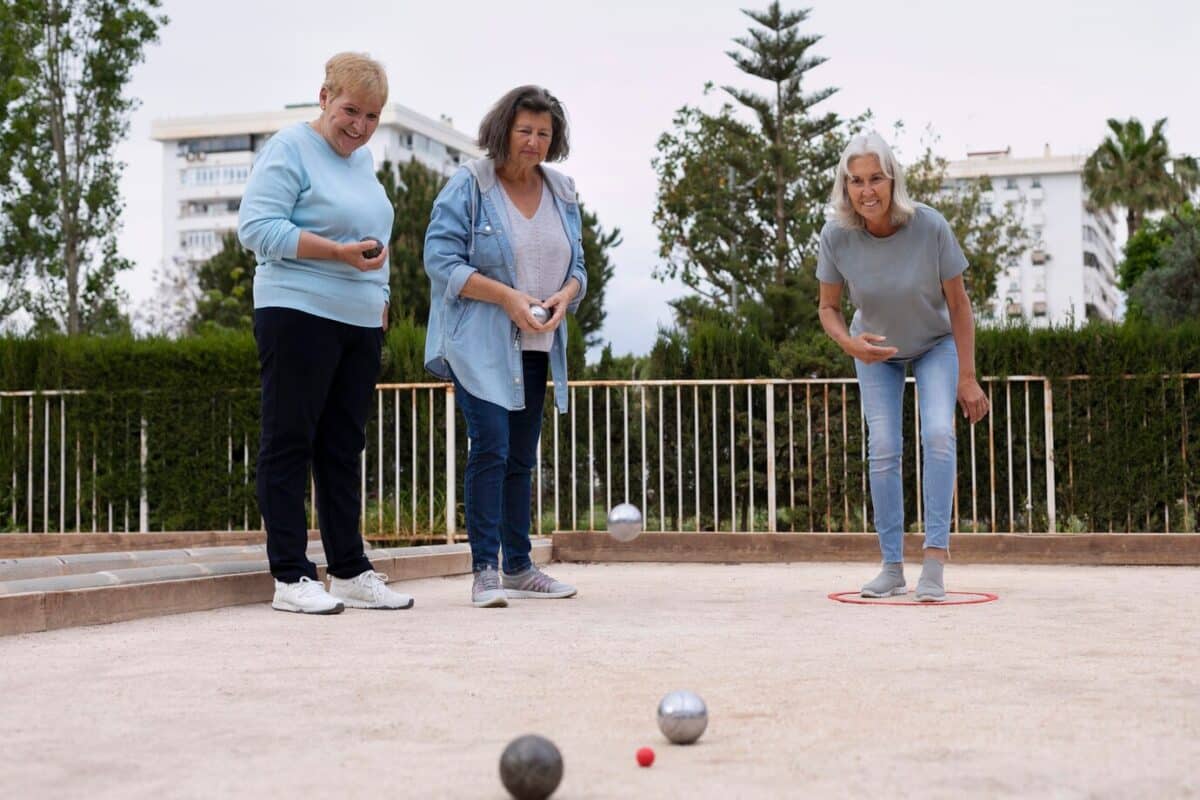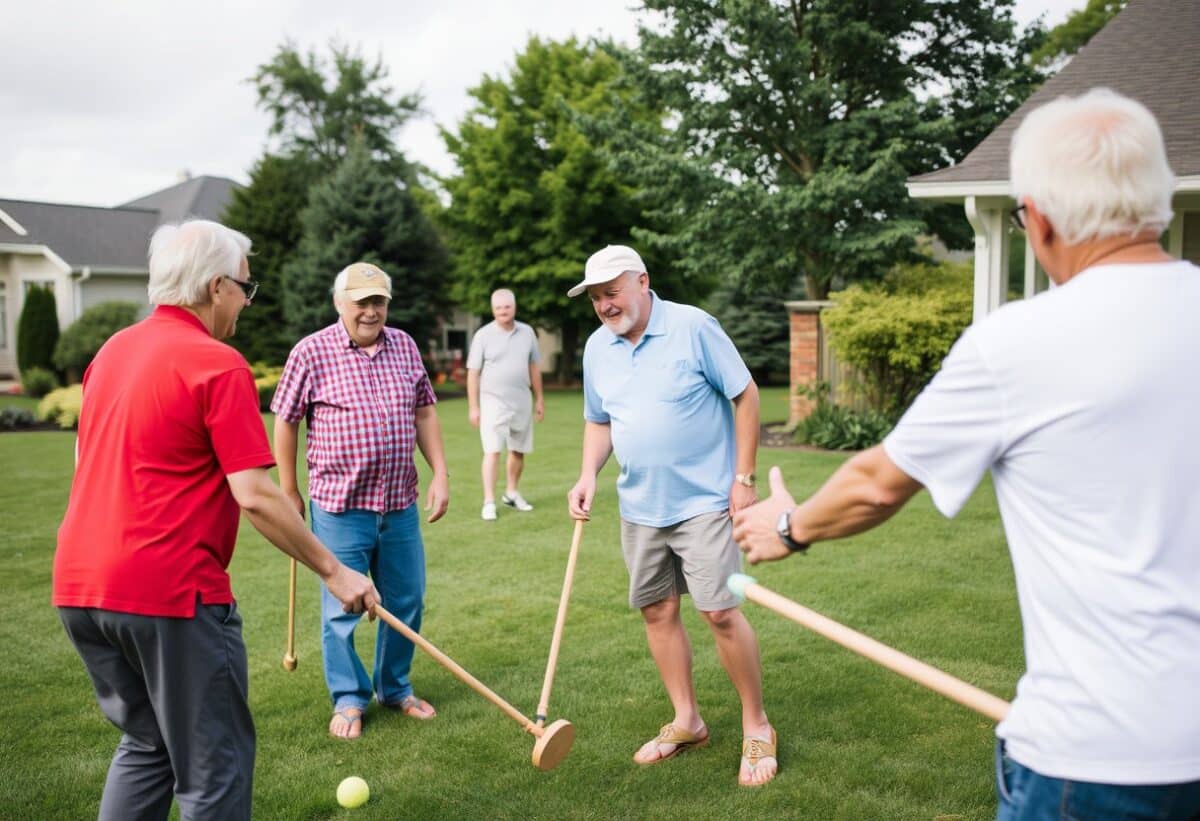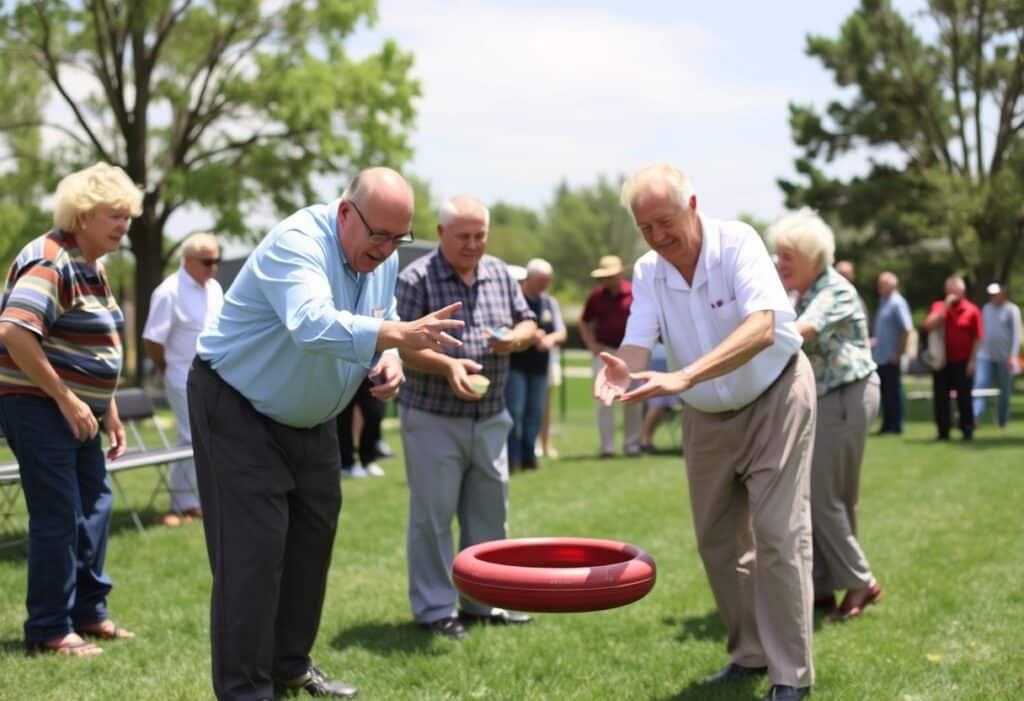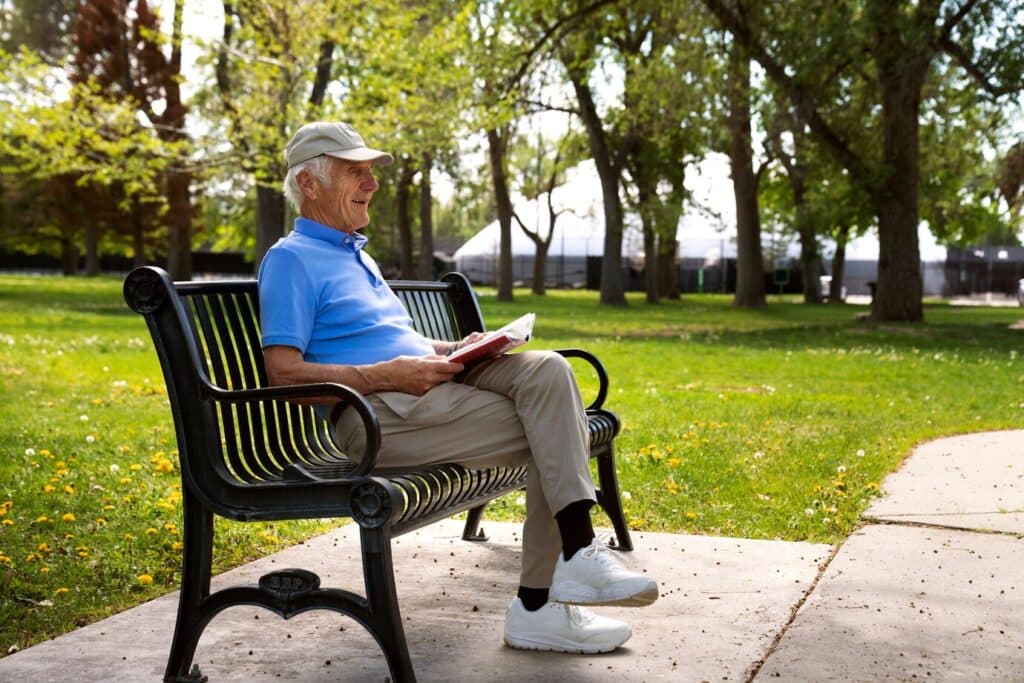Alzheimer Vs Dementia: Key Differences
Understanding the nuances of Alzheimer vs dementia is essential for both individuals and caregivers. While they may seem similar, delving deeper reveals distinct differences that can impact treatment and care strategies. Unraveling these complexities reveals a clearer picture, shedding light on how to navigate the challenges posed by these conditions effectively.
So, let’s explore the key disparities between alzheimer vs dementia to gain a deeper insight into these prevalent cognitive disorders with Westmont of Fresno.
Key Takeaways
- Alzheimer’s is a specific type of dementia.
- Dementia is an umbrella term for various cognitive decline conditions.
- Alzheimer’s is the most common form of dementia.
- Different types of dementia have distinct causes and symptoms.
- Dementia encompasses Alzheimer’s, vascular dementia, Lewy body dementia, and more.
Definition of Alzheimer’s
Alzheimer’s disease is a progressive neurological disorder that primarily affects memory and cognitive function. Memory loss is one of the hallmark symptoms of Alzheimer’s, typically starting with short-term memory difficulties and progressing to long-term memory impairment as the disease advances.
Cognitive decline, another prominent feature, includes issues with thinking, reasoning, and problem-solving skills. Individuals with Alzheimer’s may struggle with tasks they previously handled with ease, such as managing finances or following a familiar recipe.
As Alzheimer’s disease progresses, individuals may experience communication challenges, exhibit changes in behavior and personality, and have difficulty recognizing loved ones. This decline in cognitive abilities can greatly impact daily functioning and quality of life.
Caregivers play a vital role in supporting individuals with Alzheimer’s, assisting with daily activities, and ensuring their safety and well-being. Understanding the nature of memory loss and cognitive decline in Alzheimer’s is crucial for caregivers to provide adequate care and support to those affected by this debilitating condition.
Definition of Dementia
Dementia is a broad term that describes a decline in cognitive function severe enough to interfere with daily life. Dysfunction in brain structures can lead to memory disorders, impacting memory-making, keeping, or recalling (Secrets of Memory Disorders).
There are various types of dementia, including Alzheimer’s disease, vascular dementia, and Lewy body dementia, each with its unique characteristics and underlying causes. Symptoms of dementia may include memory loss, difficulty with communication, disorientation, and changes in mood or behavior, with the condition typically progressing over time.
Dementia Overview
Cognitive impairment, known as dementia, is a broad term encompassing a range of symptoms that greatly impact a person’s ability to carry out daily activities independently. Individuals affected by dementia often experience memory loss, difficulty in problem-solving, and challenges with communication. This condition requires specialized care and support, making caregiver support pivotal for both the individual with dementia and their family members.
Engaging in lifestyle interventions can play a significant role in managing dementia symptoms. Encouraging regular physical exercise, maintaining a balanced diet, and participating in cognitive stimulation activities can help slow down the progression of the disease and enhance overall well-being. Additionally, creating a safe and structured environment can help reduce confusion and disorientation commonly experienced by those with dementia.
As a caregiver, it’s essential to prioritize self-care and seek assistance when needed to prevent burnout. Understanding the complexities of dementia and implementing effective strategies can improve the quality of life for both the individual with dementia and their caregivers.
Types of Dementia
A diagnosis of dementia indicates a decline in cognitive function that interferes with daily activities. There are several types of dementia, each with its own characteristics and causes. Alzheimer’s disease is the most common form of dementia, accounting for around 60-80% of cases. Vascular dementia, caused by reduced blood flow to the brain, is another prevalent type. Other types include Lewy body dementia, frontotemporal dementia, and mixed dementia, which involves a combination of different types.
Treatment approaches for dementia vary depending on the type and severity of the condition. Medications may be prescribed to manage symptoms and slow down the progression of the disease. Physical and cognitive therapy can also improve the quality of life for individuals with dementia.
Risk factors for developing dementia include age, family history, genetics, and lifestyle factors such as smoking, physical inactivity, and poor diet. Understanding the different types of dementia and their associated treatment approaches and risk factors is pivotal in providing appropriate care and support for those affected.
Symptoms and Progression
As cognitive impairment progresses in individuals with dementia, distinct symptoms manifest, indicating a decline in cognitive abilities that impacts daily functioning. Memory loss is a common early sign, often seen as forgetting recent events or important dates. Behavioral changes such as increased confusion, agitation, or wandering may also occur. Over time, cognitive decline becomes more pronounced, affecting language skills, reasoning, and judgment. Personality changes can be observed, with individuals exhibiting shifts in mood, becoming more withdrawn, irritable, or apathetic.
As dementia advances, individuals may struggle with basic tasks like dressing, eating, or managing finances. Communication difficulties may arise, making it challenging for them to express themselves or follow conversations. In later stages, individuals may require assistance with all activities of daily living, becoming increasingly dependent on caregivers for support and supervision. Caregivers and healthcare professionals need to monitor these symptoms closely, adapting care plans to meet the evolving needs of individuals with dementia.
Causes of Alzheimer’s
Alzheimer’s disease is often linked to genetic risk factors, with specific gene variants increasing susceptibility to developing the condition.
In addition, the hallmark of Alzheimer’s involves brain cell damage, particularly the accumulation of beta-amyloid plaques and tau protein tangles, which disrupt neuronal function and communication.
Understanding these causes is vital in advancing research efforts aimed at developing effective treatments for this complex neurodegenerative disorder.
Genetic Risk Factors
Understanding the genetic risk factors associated with the development of Alzheimer’s disease is pivotal in unraveling its underlying causes. Genetic counseling plays a significant role in identifying individuals at a higher risk due to specific gene variants, such as the APOE gene. Individuals carrying certain variations of this gene are more likely to develop Alzheimer’s. Genetic testing and counseling can provide valuable information for personalized risk assessment, early intervention strategies, and genetic susceptibility.
Furthermore, lifestyle modifications can also impact the expression of genes related to Alzheimer’s disease. Engaging in regular physical exercise, maintaining a nutritious diet rich in antioxidants and omega-3 fatty acids, and staying mentally active through activities like puzzles or learning new skills can help reduce the risk of developing Alzheimer’s.
These lifestyle changes can positively influence gene expression and potentially delay or prevent the onset of the disease.
Brain Cell Damage
Brain cell damage in Alzheimer’s disease occurs due to the buildup of abnormal protein deposits in the brain, which can lead to the destruction of nerve cells. These deposits disrupt communication between brain cells, causing cognitive impairment, and typically start in the hippocampus, a region vital for memory, before spreading to other parts of the brain over time.
The buildup of abnormal protein deposits is a key factor in the damage that occurs in Alzheimer’s disease.
Causes of Dementia
Among the primary causes of dementia are various underlying diseases and conditions that impact the brain’s function and structure. Lifestyle choices and environmental factors play a significant role in developing these conditions. Here is a breakdown of some common causes of dementia:
| Cause | Description |
| Alzheimer’s Disease | Progressive neurodegenerative disorder. |
| Vascular Dementia | Caused by reduced blood flow to the brain. |
| Lewy Body Dementia | Buildup of abnormal protein deposits in the brain. |
| Frontotemporal Dementia | Damage to the frontal and temporal lobes of the brain. |
| Mixed Dementia | Combination of different types of dementia. |
Understanding the causes of dementia is essential in providing appropriate care and support for individuals affected by these conditions. Lifestyle choices such as diet and exercise, along with environmental factors like exposure to toxins, can influence the risk of developing dementia. Addressing these factors can potentially reduce the likelihood of developing dementia and improve overall brain health.
Symptoms of Alzheimer’s
Occasionally, individuals may exhibit a range of symptoms that could indicate the presence of Alzheimer’s disease. Early detection is essential in managing the progression of the disease. Here are some key symptoms to look out for:
- Memory Loss: One of the hallmark signs of Alzheimer’s is significant memory impairment, particularly in recent events or information. Understanding Alzheimer’s disease and vision problems can help recognize early signs such as blurry vision.
- Disorientation: Individuals may become confused about time, place, or even the faces of close family members and friends.
- Language Difficulties: Communication challenges can arise, including struggles to find the right words or follow conversations.
- Behavioral Changes: This can manifest as increased irritability, apathy, or even aggression, which can be distressing for both the individual and their caregivers.
Recognizing these behavioral changes early on is crucial for prompt intervention and support. If you notice these symptoms in yourself or a loved one, seeking a medical evaluation is essential to receive appropriate care and support.
Symptoms of Dementia
Many individuals may display a range of symptoms indicative of dementia, a condition that impacts cognitive function. Behavioral changes, cognitive decline, memory loss, and confusion are common signs observed in individuals with dementia.
Behavioral changes can manifest as irritability, aggression, or apathy, often affecting social interactions. Cognitive decline in dementia presents as difficulties with reasoning, problem-solving, and decision-making, impacting daily activities. Memory loss is a prominent symptom, especially in the early stages, where individuals may struggle to remember recent events or important information.
Confusion is another pivotal symptom of dementia, leading to disorientation, difficulty in recognizing familiar places or faces, and challenges in following conversations. It’s essential to recognize these symptoms early on to seek appropriate medical intervention and support for individuals experiencing dementia. Understanding these signs can assist in providing better care and support to those affected by this condition.
Diagnosis of Alzheimer’s
When diagnosing Alzheimer’s disease, healthcare professionals typically utilize a combination of medical history evaluations, cognitive tests, and imaging scans to evaluate cognitive function and rule out other potential causes of memory loss and cognitive decline. Early detection is essential in managing Alzheimer’s disease effectively. Cognitive tests significantly evaluate memory, problem-solving abilities, language skills, and other cognitive functions that Alzheimer’s disease may impact. Here are four key aspects of the diagnosis process for Alzheimer’s:
- Medical History Evaluation: Gathering information about symptoms, family history, and overall health helps in understanding the progression of cognitive decline.
- Cognitive Assessments: Tests like the Mini-Mental State Examination (MMSE) evaluate memory, attention, and language skills to identify cognitive impairment.
- Imaging Scans: MRI and PET scans can show brain changes associated with Alzheimer’s, aiding in diagnosis and tracking disease progression.
- Blood Tests: Some blood tests can help rule out other conditions resembling Alzheimer’s symptoms, assisting in accurate diagnosis.
Early and precise diagnosis is essential for timely interventions and appropriate management of Alzheimer’s disease.
Diagnosis of Dementia
Utilizing a thorough approach, the diagnosis of dementia involves evaluating cognitive decline and functional impairment through a series of evaluations and tests. Early detection is essential in managing dementia effectively. Screening methods commonly used include cognitive assessments like the Mini-Mental State Examination (MMSE) and the Montreal Cognitive Assessment (MoCA). These tests evaluate memory, attention, language, and other cognitive functions. Additionally, healthcare providers may utilize imaging tests such as MRI or CT scans to detect any structural brain changes that could indicate dementia.
In the early stages of dementia, symptoms may be subtle, making diagnosis challenging. However, by combining information from cognitive assessments, medical history, physical examinations, and laboratory tests, healthcare professionals can arrive at a thorough diagnosis. Objective evaluation tools are critical in identifying cognitive decline and tracking its progression.
Timely diagnosis allows for appropriate interventions and support, enhancing the quality of life for individuals living with dementia and their caregivers.
Treatment Options
Moving forward from the diagnostic phase, treatment options for dementia aim to address cognitive decline and manage symptoms effectively.
- Medication Management: Medications such as cholinesterase inhibitors and memantine are commonly prescribed to help manage cognitive symptoms and improve the quality of life for individuals with dementia.
- Lifestyle Modifications: Encouraging physical exercise, a balanced diet, social engagement, and mental stimulation can help slow down cognitive decline and enhance overall well-being.
- Behavioral Therapies: Behavioral interventions like cognitive behavioral therapy (CBT) or reminiscence therapy can be beneficial in managing behavioral symptoms and improving communication skills.
- Supportive Care: Providing a supportive environment, access to resources like support groups, and assistance with daily activities can notably enhance the quality of life for both individuals with dementia and their caregivers.
When combined and tailored to the individual’s specific needs, these treatment options can help manage symptoms, improve daily functioning, and enhance the overall quality of life for those living with dementia.
Frequently Asked Questions
Can Alzheimer’s or Dementia Be Prevented Through Lifestyle Changes?
Healthy habits like regular exercise and a balanced diet can reduce the risk of alzheimer vs dementia. Engaging in cognitive exercises like puzzles or learning new skills may also help maintain brain function and delay cognitive decline.
Is There a Specific Age Group More Prone to Developing These Conditions?
As you consider early signs of alzheimer vs dementia, understanding that individuals over the age of 65 are more prone to developing these conditions due to various risk factors is crucial.
Are There Any Alternative or Complementary Treatments for Alzheimer’s and Dementia?
Yes, there are alternative treatments for alzheimer vs dementia. Herbal supplements like ginkgo biloba and mindfulness therapy have shown some benefits in managing symptoms. It’s important to consult healthcare providers before trying these options.
How Do Alzheimer’s and Dementia Affect a Person’s Emotional Well-Being?
When dealing with the emotional impact of alzheimer vs dementia, it’s important to implement coping strategies like mindfulness or journaling. Support systems such as therapy or caregiver groups can provide invaluable assistance during challenging times.
Can Genetics Play a Role in the Development of Alzheimer’s or Dementia?
Genetic risk can contribute to alzheimer vs dementia. Environmental factors also play a role in their development. Understanding your family history and lifestyle choices can help in managing these risks and promoting brain health.
Final Thoughts
To conclude, distinguishing between Alzheimer’s disease and dementia is essential for accurate diagnosis and appropriate treatment. While Alzheimer’s is a specific form of dementia characterized by progressive cognitive decline and memory loss, dementia is a broader term encompassing various conditions affecting cognitive abilities. Understanding the key differences of alzheimer vs dementia in causes, symptoms, and diagnostic approaches can lead to better management strategies and improved quality of care for individuals affected by these conditions. For more information about alzheimer vs dementia and support, contact Westmont of Fresno at 559-446-1266.

































